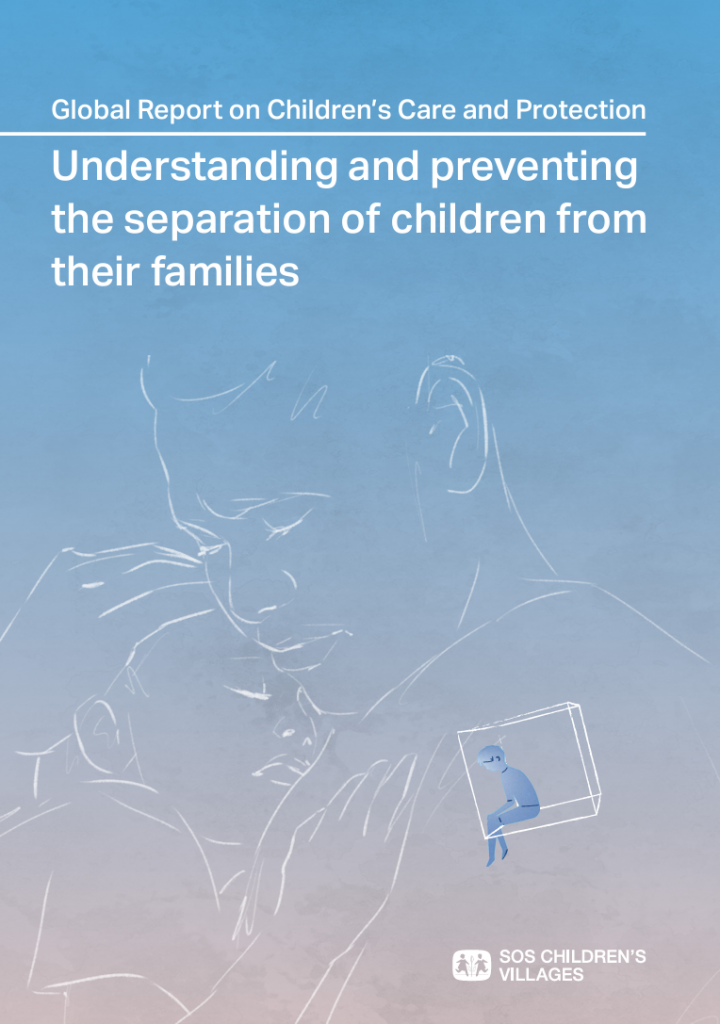We can’t manage what we don’t measure: more child protection data is needed to prevent family separations

Chrissie Gale introduces a new global report, commissioned by SOS Children’s Villages International, that provides insights into the factors contributing to children’s loss of parental care, as well as the kinds of interventions needed to improve children’s lives by preventing it.
An estimated one in 10 children – a total of 220 million – are either living without parental care or are at risk of losing it. This crisis has long-lasting consequences for children's health, wellbeing, and future development, and for the fabric of society at large.
And yet our best estimates are unlikely to give the true picture of children’s care around the world because few countries have enough reliable and rigorous data. Without information on the children at risk of losing parental care and their circumstances, many slip through the cracks of under-resourced and fragmented social services.
 Despite the critical importance of preventing family breakdowns and protecting vulnerable children, the child protection sector typically receives less investment and attention than healthcare and education, which come with more straightforward metrics and measures of success.
Despite the critical importance of preventing family breakdowns and protecting vulnerable children, the child protection sector typically receives less investment and attention than healthcare and education, which come with more straightforward metrics and measures of success.
Data on vaccination levels or exam results, for example, gives a quantitative indication of children’s prospects. But capturing data on the children at risk of being placed into alternative care because of household poverty, health issues or intergenerational violence is a far more complex endeavour that requires much more multi-sectoral and targeted investment. Developing the mechanisms to prevent it requires yet more funding, training and coordination.
Gathering robust data on the many challenges faced by families can help identify the root causes of family separation, inform better support strategies, and ensure interventions reach the children and families who need them the most. A new global report, commissioned by SOS Children’s Villages International, for example, sheds light on the key drivers of child-family separation, identifying family-level issues, societal pressures, and systemic weaknesses that lead to parental loss.
At the family level, issues such as domestic violence and substance abuse are among those that contribute to family breakdown and the resultant child-family separation, while broader societal issues, such as poverty and lack of employment opportunities, add additional strains. Systemic factors, such as inadequate coordination among social services, compound the challenges facing families by limiting their access to support at critical times.
This new analysis, drawn from testimonies of children, young people who have left alternative care, families, and social protection professionals, provides insights into the factors contributing to children’s loss of parental care, as well as the kinds of interventions needed to improve children’s lives by preventing it.
A significant challenge highlighted by the new report was the cyclical nature of trauma and violence. Without support, many children who experience family separation may carry unresolved trauma into adulthood, affecting their future relationships and parenting abilities.
Having identified this, generational cycles of violence and trauma can and should be targeted and closed through anti-violence and parenting support programmes.
But family-child separation is rarely caused by one factor alone, and preventing future separations relies on integrating and sharing data across all relevant government agencies and social service providers.
An integrated, multi-sectoral approach to data collection, in which information from healthcare, social services, education, and legal systems is combined, can offer a complete view of the realities that families face. This approach would also allow child protection professionals to develop specific strategies to keep families together by identifying early indicators of family stress and intervening before issues escalate into child-family separation.
Models for more integrated family services already exist. Ukraine’s one-stop-shops, for example, have shown the benefits of an integrated approach to understanding families’ circumstances and offering adequate support. The public service centre in Kharkiv has allowed residents to access more than 400 services from specialised professionals in one place, proving that integrated approaches are feasible and effective for addressing diverse needs within communities.
A commitment to building a strong data infrastructure would not only empower policymakers to design more effective child protection systems but also guide investments toward the services and interventions that are most impactful to children’s well-being and future development.
Every child needs and deserves a safe, loving home and a chance to thrive. To improve the world for children, governments and international agencies need to ramp up investments in gathering comprehensive, detailed data that measures the circumstances and situations that jeopardise parental care and protection. Only then can governments develop better policies and identify interventions that ensure no child loses the chance of a healthy and fulfilling future.
Dr. Chrissie Gale, international child protection consultant and former chief of child protection at UNICEF.


